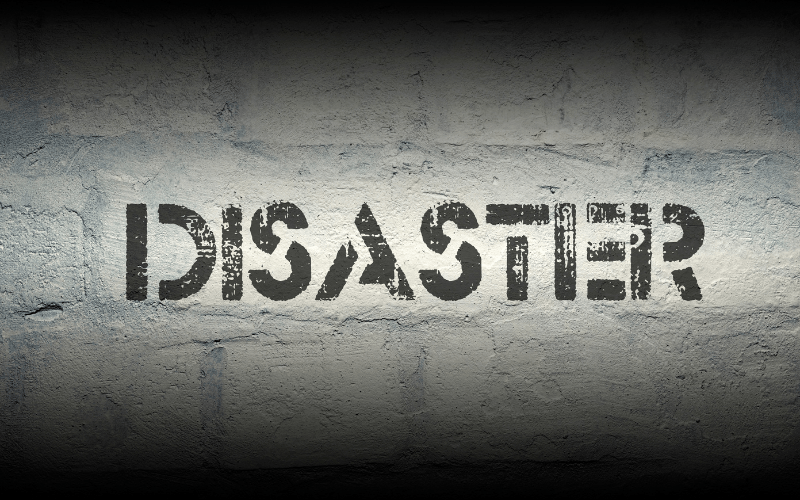EMDRIA is a community of mental health professionals that exists to create global healing, health, and hope. The recent violence and atrocities in the Middle East are creating anguish and extreme trauma for so many. As an organization, we abhor the hatred and racism that divide people, and we long for peace and an embracing of our shared humanity.
We are profoundly concerned and condemn all indiscriminate violence that creates physical and mental trauma. Our hearts go out to those who have suffered loss and who continue to experience trauma and violence. We hope and long for a time when the hatred that breeds such violence is only part of our history as humans, not part of our lived experience. Until that day, as clinicians and a mental health community that treats psychological trauma, we want to offer not only our profound empathy and support for those who have been hurt or are in harm’s way but also to offer resources for help.
If you are experiencing challenges and trauma, EMDRIA members are equipped to provide you with assistance and resources to help. You can use our Find an EMDR Therapist Directory. Additionally, several grassroots and organizational efforts are currently supporting people directly affected by the war, its neighboring countries, and those living in the U.S. with loved ones in the affected countries. Our colleagues in EMDR Israel, EMDR Lebanon, and other EMDR organizations in the Middle East are available to help.
Here are some essential tips for coping with the trauma of loss and violence:
Tips for Coping
- Talk about the situation when appropriate. It might be helpful to share with others so you can realize that you are not alone with those feelings.
- Take care of yourself. Try to rest and exercise, drink water, and eat properly. Make sure to do things that nurture you, such as drawing, painting, art, reading, dancing, singing, yoga, and others.
- Allow yourself to have feelings. Let the grief process out, and weep for the experience and loss of our community, loved ones, and ourselves.
- Limit exposure to images of the war. Especially avoid television news programs and pictures from social media. If you need to keep yourself informed about what is happening, limit your watch time.
- Focus on the things that you can do. Avoid dwelling on the things that you cannot control. Try to accept uncertainty as much as you can. Be kind to yourself and others.
- Listen to your advice. If a friend or a loved one comes to you with those worries, what would you tell them?
- Identify community support. Search for groups in the community that might help you feel connected virtually or in person.
If you are a clinician and want to assist, here are a few tips to support people affected:
- Hold space, allowing companionship, and providing a space of safety to grieve.
- Be aware that any of your clients or colleagues might be experiencing triggers, multiple feelings, and body sensations due to the situation in Israel and Palestine. Some might have loved ones in the middle of the conflict. Others might feel overwhelmed by the news, and others might have loved ones in the military who are worried about the war’s development and their future role.
- Talk about the impact of the conflict with all your clients. Offer to process if the client wants/needs to do so.
- Revisit treatment planning to check if your client(s) need to process the current situation… “I wonder how you are doing with the current war between Israel and Palestine. If you need/want, we can use EMDR techniques and protocols to process your feelings, thoughts, and body sensations around this situation.”
- You can use EMD techniques for stabilization and EMDR Early Interventions for individuals and groups.
- Use grounding and calming techniques regularly to help stabilize clients and yourself. When overwhelmed, we might forget things like breathing and drinking water.
- Be aware and sensitive to how the current situation might trigger trauma responses from past events for your clients and yourself.
- Remain calm and orient to the things that one can do. Anxiety, sadness, grief, and anger are common and appropriate.
- Offer support also for those who appear to withdraw. They are sometimes overlooked because their behaviors appear not problematic.
- Empower people to use resourcing strategies such as the four elements: meditation, yoga, and other grounding.
- Some people might feel isolated and separated from their community because of stereotypes and disinformation.
- Avoid hostility toward Jewish or Muslim descendants and misguided prejudice.
- Be aware of how you refer to those involved in the conflict. Avoid generalizations about descendants. Children might be sensitive and copy how they see adults referring to Jews or Muslims.
- Connect with your local community and support organizations and individuals affected by the war.
- Get more information and training about EMDR Early Interventions. See several resources at the end of this blog.
- Check in with clients about how their identity or cultural inheritance has influenced or impacted their experience of, and reactions to the conflict.
Here are a few considerations for working with Israelis and Jews and Palestinians and Muslims living in the U.S. (they might apply to other immigrants or descendants of Middle Eastern countries):
- They might feel guilt and shame for not being there or thinking they are not doing enough.
- They might feel hypervigilant and constantly worry about their loved ones back home.
- They might feel grief by seeing the destruction of places they have visited or their hometowns.
- They might have feelings of anxiety, nightmares, and sleeping problems.
- Consider using the EMD techniques and EMDR Early Interventions for individuals and groups, as mentioned earlier in this post.
EMDR Resources
- The Efficacy of EMDR Early Interventions
- Global Summit Conference EMDR – Early Intervention and Crisis Responses: Current practices, research finding, global needs and future Directions
- Go With That Magazine about EMDR and Early Interventions (September 2018)
- The processing continuum: EMD, EMDr, and EMDR
Additional Resources
- Common Sense Media: How to Talk to Kids about Violence, Crime and War
- Very Well Family: Talking to Your Kids about War
- Self-Care Video for Frontline Workers
How to Manage War Anxiety
- WebMD: How to Handle War Anxiety
- APA: Resilience in a Time of War: Tips for Parents and Teachers of Elementary School Children
- International Society of Traumatic Stress Studies: War and Disaster Resources
For Military Families
- Sesame Street for Military Families
- FOCUS Project
- Military One Resource
- Veteran Crisis Line
- The U.S. Department of Veterans Affairs offers access to post-traumatic stress disorder (PTSD) programs.
Stress Management Resources
The National Child Traumatic Stress Network offers these resources for children and families who need support:
- Talking to Children About War
- Age-Related Reactions to a Traumatic Event
- Traumatic Separation and Refugee and Immigrant Children: Tips for Current Caregivers
The Center for the Study of Traumatic Stress at the Uniformed Services University also offers resources:
- Managing the Stress of Children after a Crisis
- Post Disaster Stress Management for Parents
- Helping Communities and Families Recover after a Disaster
- Information for Responders on Emotional Reactions to Human Remains
- Leadership Communication for Anticipating and Responding to Stressful Events
- Leadership Stress Management
Back to Focal Point Blog Homepage
Additional Resources
If you are a therapist interested in the EMDR training:
- Learn more about EMDR at the EMDRIA Library
- Learn more about EMDR Training
- Search for an EMDR Training Provider
- Check out our EMDR Training FAQ
If you are EMDR trained:
- Check out EMDRIA’s Let’s Talk EMDR Podcast
- Check out the EMDRIA blog, Focal Point
- Learn more about EMDRIA membership
- Search for Continuing Education opportunities
If you are an EMDRIA Member:
Date
October 12, 2023
Topics
Anxiety/Panic/Phobias, Tragedies
Client Population
Military/Veterans





